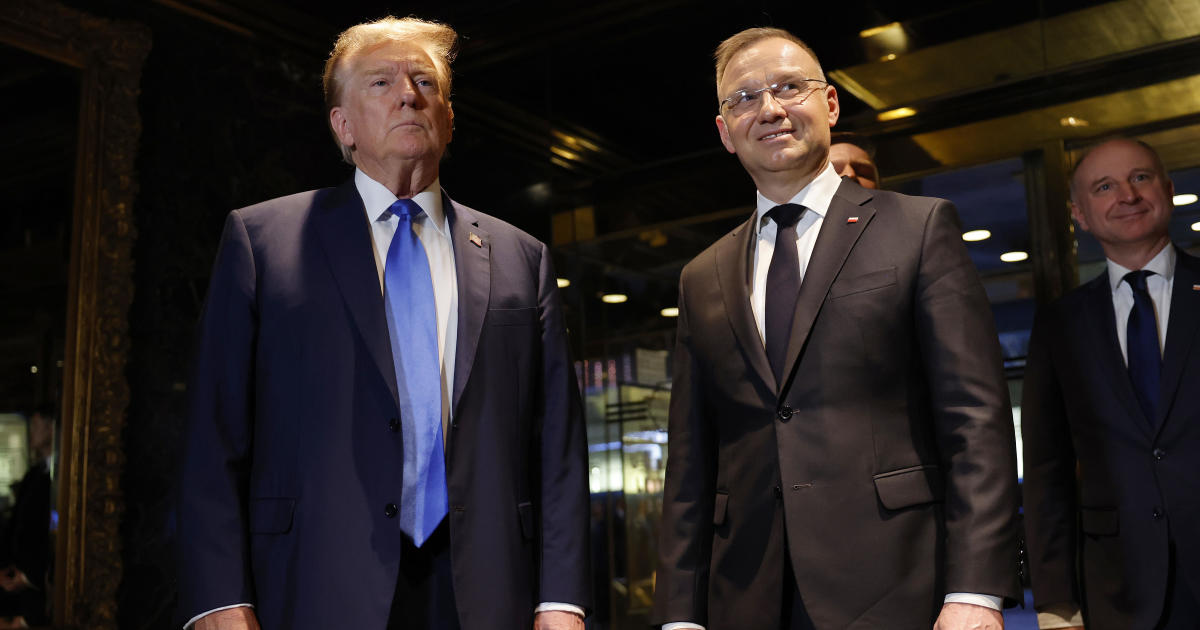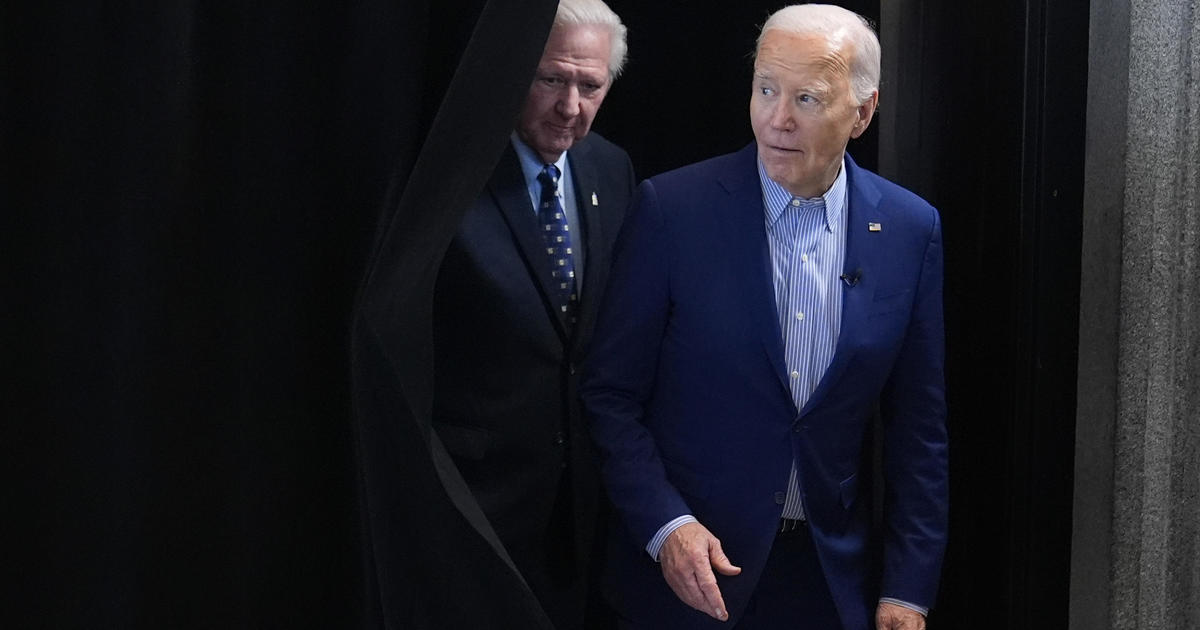Trump's tariffs cost U.S. importers an extra $3.4 billion in June alone
- As the trade war with China heats up, U.S. importers are already paying a bigger bill, according to calculations from a coalition of business groups called "Tariffs Hurt the Heartland."
- $3.4 billion of $6 billion in tariffs collected by the U.S. in June are from new duties imposed under President Trump
- More taxes on goods from China, paid for by U.S. importers and deposited into the U.S. Treasury, are slated to be imposed Sept. 1.
President Donald Trump's trade war with China may be heating up, but it's also burning a hole in the income statements of U.S. importers of overseas goods.
U.S. companies paid $6 billion in import tariffs in June, a 73% increase from June 2018. About $3.4 billion of that total comes from new tariffs imposed by President Donald Trump in the past year, including those on imports of Chinese goods, according to calculations from "Tariffs Hurt the Heartland," a coalition of businesses and associations.
The figures, compiled from U.S. Census Bureau data to discern taxes imposed under Mr. Trump's administration, are the first from a month to include the most recent round of tariffs imposed on Chinese imports. Those taxes were raised in May to 25% from 10% on about $200 billion of largely industrial goods from China.
The values tracked for June don't include a new round of tariffs of 10% on virtually every remaining consumer product imported from China to the U.S., or about $300 billion worth of products, slated to take effect Sept. 1. That move would mean the average tax on imported Chinese goods would be more than 20%, according to a recent estimate from the Peterson Institute for International Economics.
And this time, consumers are more likely to feel the pinch, as the September list includes popular items like smartphones, clothing, footwear, food, electronics and books, including the Bible.
U.S. companies, not countries, pay tariffs
"Americans are already paying record-high tariffs, and the biggest hit to consumers is still to come on September 1," Tariffs Hurt the Heartland spokesman Jonathan Gold said in a statement.
Contrary to what Mr. Trump erroneously and repeatedly states in tweets, companies that import goods and services pay the tariffs to U.S. Customs and Border Protection, not countries like China. The proceeds wind up in the U.S. Treasury, and companies either absorb the cost or pass some or all of it to customers.
In total, new tariffs imposed under Mr. Trump have added $27.2 billion to the Treasury, with more than 75% of that coming from the taxes that U.S. importers pay on Chinese-made goods, according to Tariffs Hurt the Heartland.
At the same time, U.S. exports to China fell 19% in July from a year earlier to $10.9 billion, customs data showed Thursday, though that was an improvement over a 31% drop the previous month. Still, the trend is down: China's imports of U.S. goods fell 28.3% in the first seven months of 2019 compared with a year earlier, according to the General Administration of Customs of China.
That means U.S. companies are shipping fewer goods to what is still one of the world's fastest-growing markets.
Tales from the front
The most recent round of tariffs has already forced Joseph Shamie, president of New York-based Delta Children, a maker of cribs, bassinets and toddler beds, to raise prices. Delta, which employs more than 300 people, isn't able to quickly move production of some items from China easily because the workers are trained to make the items up to current U.S. safety standards. His goods were hit by the most recent 25% tariff already in effect.
"The way I look at it, we've literally put a tax on having a child from those products to car seats and other things," Shamie said. He made his remarks on a call with business owners and reporters arranged by Tariffs Hurt the Heartland Wednesday.
His biggest concern? Customers making $60,000-$70,000 a year won't be able to afford the increase and will turn to thrift shops and used items that aren't as safe as current products.
"Their income didn't go up, but their expenses went up, " Shamie added . "How do you expect them to afford it?"
Jay Foreman, CEO of Boca Raton, Florida-based Basic Fun! Toys, whose toys include the classics Lite Brite and View-Master, said some retailers plan to raise prices this holiday season by 10% to 20% while others may wait until next year. There is a "direct correlation" to the tariffs and potential job cuts at Basic Fun!, Foreman said on the call.
"We are not making toys here using imaginary elves from the North Pole," he said. "American workers are designing, developing selling, shipping and tracking our toys. These tariffs have the potential to stagnate our growth and force us to reduce staff and cut jobs here in Florida."
Tariffs offset by farm subsidies
Still, Mr. Trump's tariffs have been offset by roughly $28 billion in government aid promised to American farmers whose sales have been crippled or blocked by China's retaliatory moves in response to the U.S. tariffs. That includes $12 billion in aid announced last year and $16 billion announced in May.
Recent research suggests that for Chinese imports subject to tariffs so far, American consumers and businesses are taking the biggest hit in the form of higher prices and costs. In May, a study from the Federal Reserve found that tariffs in effect could cost the average family $831 a year.
Customs duties collected in the fiscal year that started last October currently total $50 billion, up from $28.3 billion for the same 10 months in 2018, according to recent U.S. treasury data. That pace puts the U.S. on track to collect $72 billion annually, the Wall Street Journal noted Wednesday.
That $72 billion projection may seem like a lot, but it's just 0.4% of the $20 trillion U.S. economy, still the world's largest.
Still, that doesn't take into account the "snowball effect" the tariffs might have on a small business where most or all of their profit is eaten up by new tariffs, said Wade Miquelon, CEO of Hudson, Ohio-based JOANN stores, on the Tariffs Hurt the Heartland call Wednesday. His company was hit "substantially" by the last round of tariffs at 25%.
That's what's "very significant and scary" because job cuts lead to fewer consumer purchases, which slows growth in a "vicious cycle" of higher prices and less demand that "just feeds the entire beast of a tougher economy," Miquelon said.
"It's not like a lot of companies are complaining because their profits will be down just a couple percent or even 10%," Miquelon said. "We're talking about, in many cases, more than 100%."
The White House last year began imposing tariffs on imported goods under decades-old trade statutes, including the duties on Chinese goods under what's known as Section 301 of a 1974 trade law.



